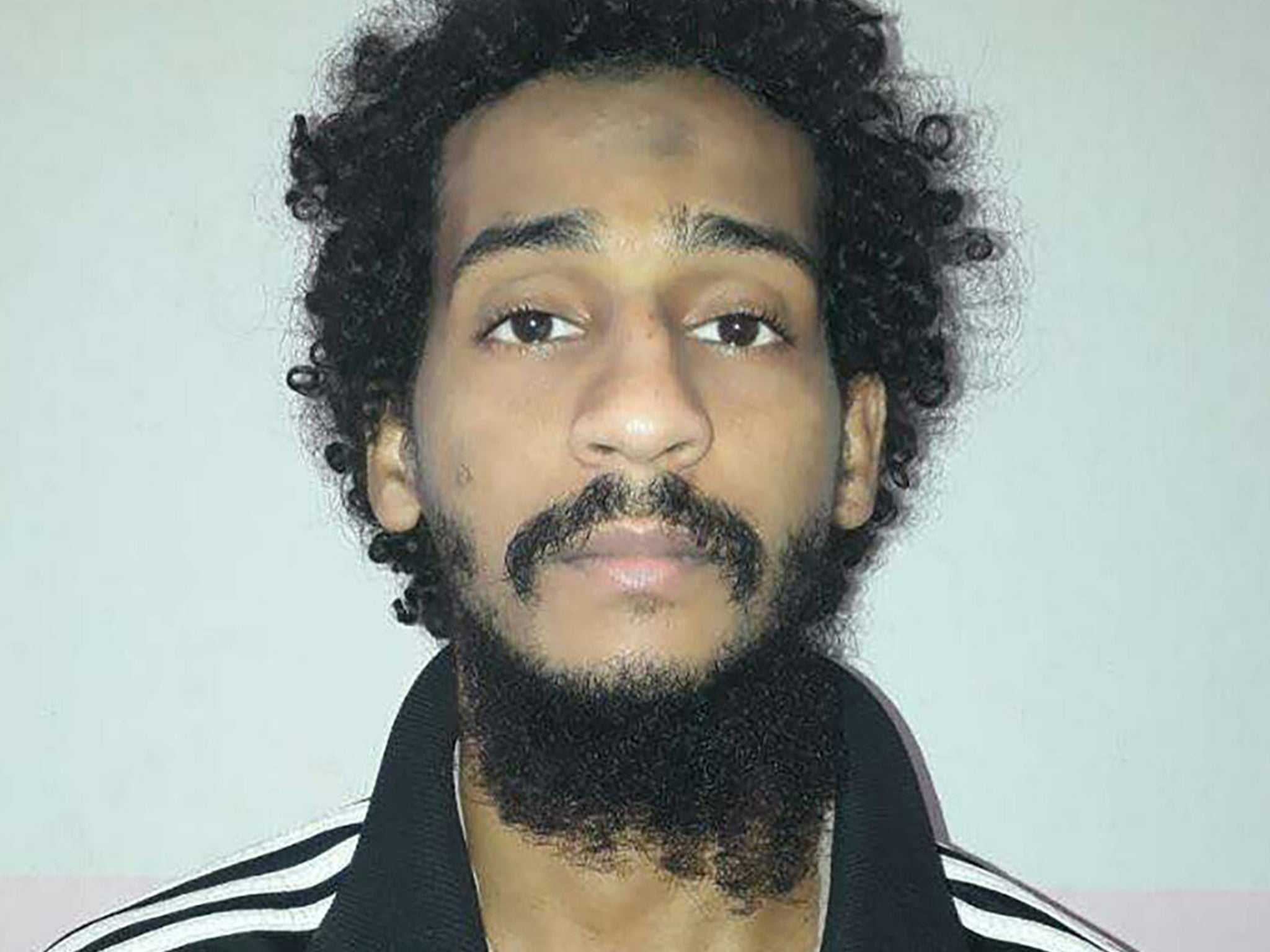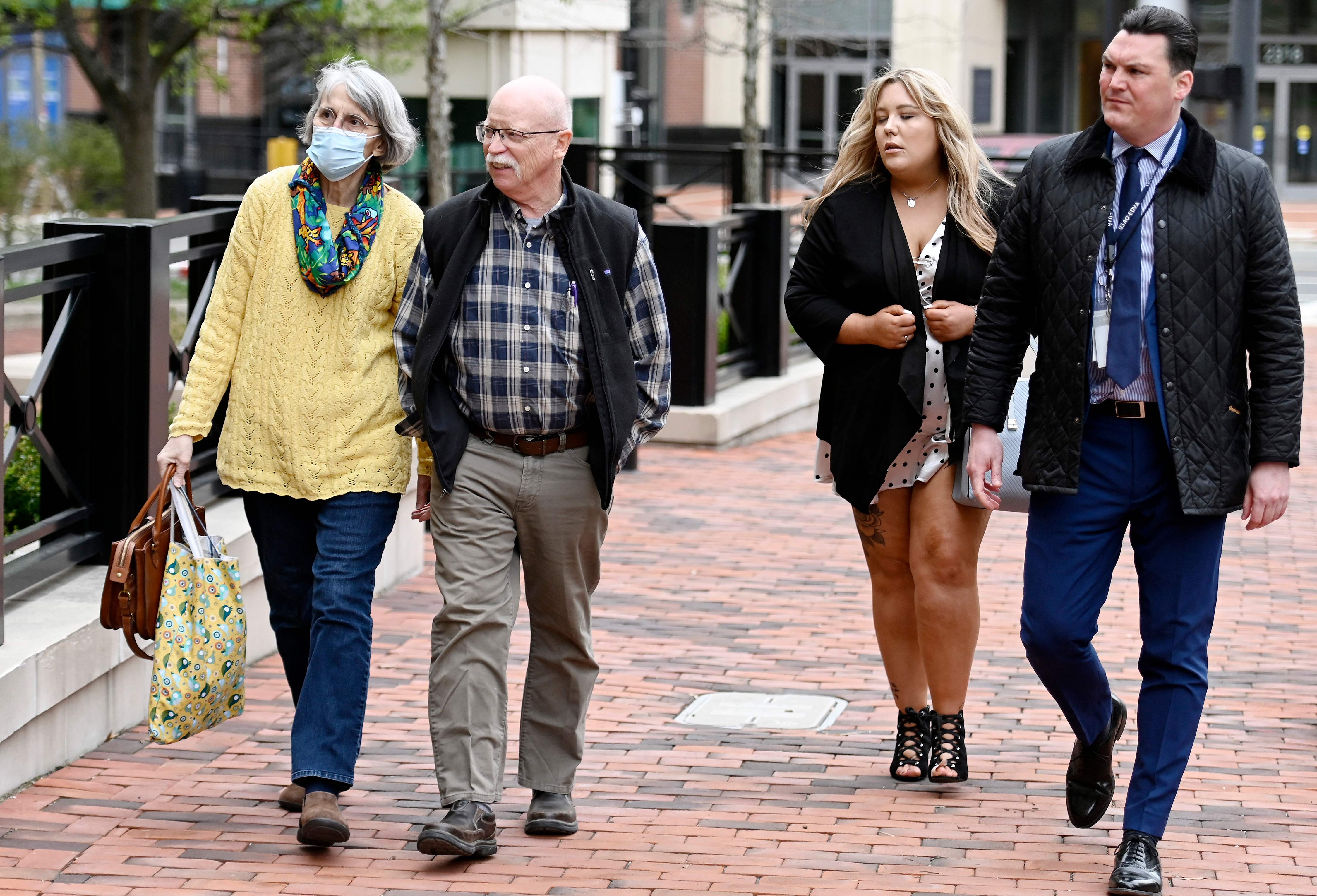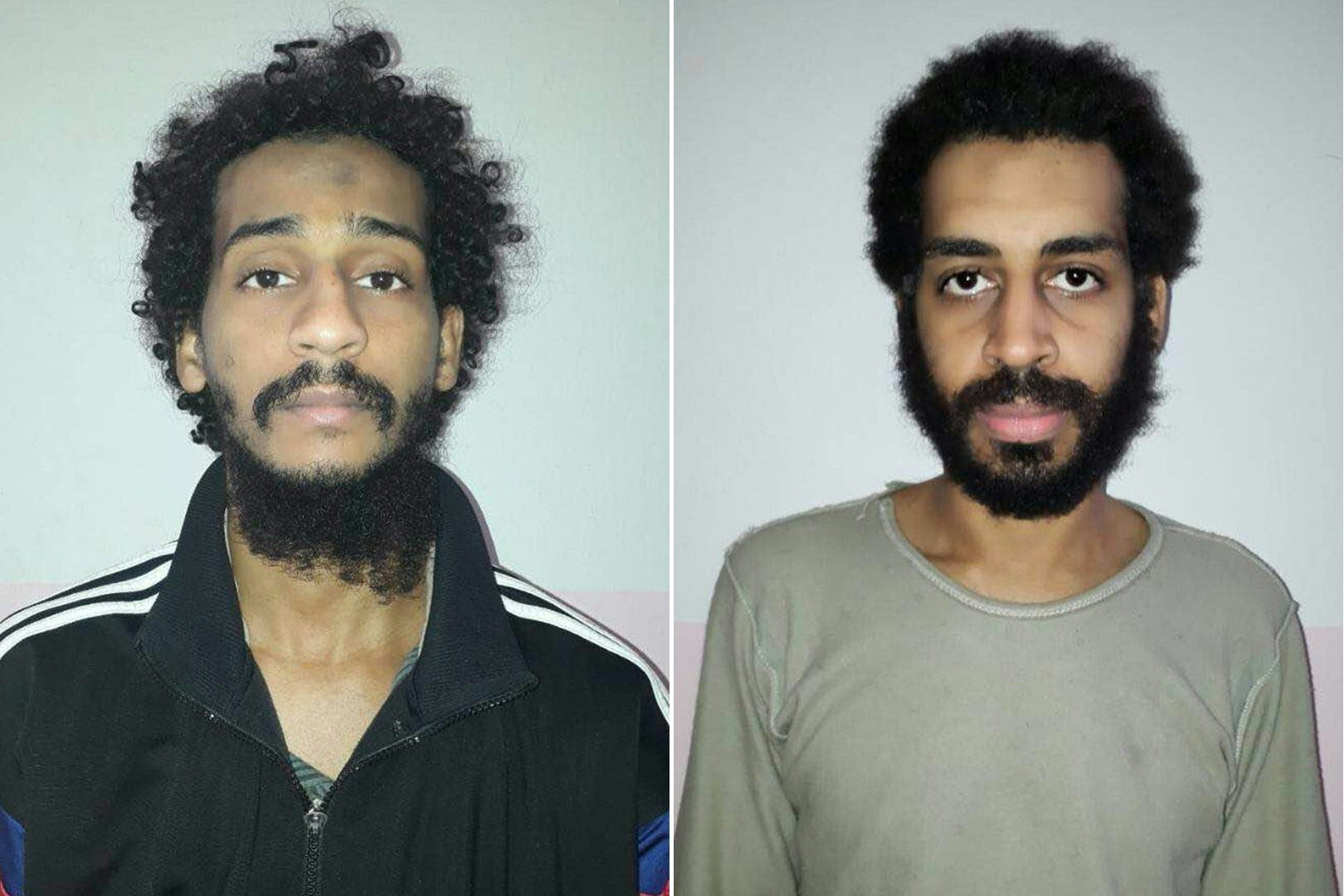‘They played games with us’: Former hostage of Isis ‘Beatles’ describes brutal treatment at hands of British jailers
El Shafee Elsheikh is standing trial in Virginia for alleged involvement in hostage-taking operation

A former hostage of the so-called Isis ‘Beatles’ described how he was waterboarded, beaten, starved and forced to fight fellow detainees as part of a “regime of punishment” meted out by his captors.
Federico Motka, an Italian aid worker who was held by Isis for 14 months in Syria, detailed his brutal treatment at the hands of the British jihadists during the trial of El Shafee Elsheikh, who the prosecution has alleged was known as ‘Ringo.’
Elsheikh, 33, is charged with involvement in a vast hostage-taking operation during his time with Isis in Syria, which ultimately led to the killing of American journalists James Foley and Steven Sotloff, and aid workers Kayla Mueller and Peter Kassig. The indictment also holds him responsible for the deaths of British aid workers David Haines and Alan Henning.
The group is alleged to have been involved in the kidnapping of at least 27 people in Syria between 2012 and 2015, most of them Westerners. In a federal courtroom in Alexandria, Virginia, Mr Motka’s testimony provided an insight into the cruelty of the British jihadists towards their prisoners.
Mr Motka described the moment he was kidnapped alongside his colleague David Haines as they were carrying out an aid assessment in northern Syria in March 2013. He said he was on the phone with his boss when eight masked, armed men surrounded their car and ordered them out.
He told his boss: “I think I’m being kidnapped,” he recounted to the court.
As they were driven deeper into Syria, Mr Motka said one of the kidnappers turned to Mr Haines and said: “Welcome to Syria, you mutt.”
The pair would identify at least three British men among their captors in those first days, who they would come to know well during their captivity. They were present at their capture, frequently during their detention, and at Mr Motka’s release in May 2014. The Beatles were the most brutal of all the Isis guards, Mr Motka said.
The three British Isis members were later identified by hostages as Elshiekh, Alexanda Kotey and Mohammed Emwazi. Mr Motka described how he and other hostages came up with their nicknames.
“We started calling them ‘the Brits,’” Mr Motka said, but they worried their guards would figure out what they were talking about, so they instead referred to them as “The Beatles.” They gave names to each of them: Ringo, George, John.
Prosecutors said in court that the man identified as Ringo is Elsheikh. Previous media reports had identified Elsheikh as George, and Kotey as Ringo. Emwazi was known as John, and Aine Lesley Davis, a fourth Brit who was around less frequently, was nicknamed Paul.
Mr Motka went on to describe beatings and torture at the hands of the British jihadists, who seemed at times to revel in their brutality.
“They played lots of games with us,” he said. “They gave us dog names and told us that if they called us day or night we had to respond.” The punishment for failing to do so was a beating, he added.
Mr Motka also described an incident in which one of the group lost their temper with him during a late-night trip to the bathroom.

“Something I said triggered them. They came in 20 minutes later and started to beat and kick me,” he said. “They called me a posh wanker because I went to boarding school.”
After what Mr Motka described as a “calm” first few weeks of captivity, that changed when he was accused of trying to escape from jail and talking to a Syrian captive. From then on, he said a “regime of punishment” was introduced.
One on occasion, Mr Motka said the Beatles forced him and Mr Haines to fight with fellow hostages John Cantlie and James Foley in a “Royal Rumble.” They shouted orders through a grate above to fight each other, while they jeered and gave mock radio commentary. They told the group that whoever lost would face waterboarding. The four were so weak and emaciated from a lack of food and poor conditions that two of them passed out.
Mr Motka explained how the three Beatles used to encourage each other to carry out acts of violence against the prisoners. Sometimes they would place them in stress positions for hours for perceived transgressions.
“They egged each other on like school kids in a yard bullying someone,” he said.
He described in detail how the two Beatles they knew as George and Ringo subjected him and Mr Haines to waterboarding. They placed a wool jumper over his face and used a hosepipe to douse him in water until he nearly passed out.
The waterboarding, along with the introduction of orange jumpsuits for the hostages later on, was part of an effort by ‘George’ to recreate the conditions of the prison facility on Guantanamo Bay.
“George always spoke about Guantanamo Bay,” said Mr Motka.
Mr Motka said there was a certain protocol implemented by the Beatles during their captivity: detainees had to kneel and face the wall when they entered the cell. The Brits wore full balaclavas with only the eyes showing all the time. In the courtroom, Elsheikh watched the testimony while wearing a mask that covered the bottom half of his face.
The jury was shown graphic footage of Emwazi executing a Syrian man with a bullet to the head in front of Mr Mokta and four other hostages, which was sent to their families as a threat to extort more money. The jury was then shown a television interview Elsheikh gave in which he admitted to being present at the execution. Mr Mokta testified that all three Beatles were present at the execution.
Elsheikh, who was born in Sudan and then raised in the UK, is the most high-profile Isis member to stand trial in the US. He went to Syria in 2012, at which point he joined an affiliate of Al Qaeda. Later, he and his friend Alexanda Kotey would swear allegiance to Isis and join up with fellow Brits Emwazi and Davis.

Emwazi was perhaps the most infamous of the group, and thought to be the ringleader. Known as ‘Jihadi John,’ he carried out the beheadings of Foley, Sotloff, and British citizens David Haines and Alan Henning — acts which Isis filmed and released in propaganda videos.
Elsheikh and Kotey were captured by the Kurdish-led Syrian Democratic Forces in 2018 as they fled the former Isis capital of Raqqa dressed as civilians. They were held in Syria until October 2020, when they were eventually taken to the US to stand trial.
Kotey pled guilty in September 2021 to the murders of Foley, Sotloff, Meuller and Kassig, and is due to be sentenced next month. Emwazi was killed in a drone strike in 2015. Aine Lesley Davis, the fourth member of the group, was convicted in Turkey on terrorism charges and jailed for seven and half years in 2017.
After previously admitting to being one of the Beatles in media interviews given after his capture, Elsheikh’s defence team this week said that the evidence would not prove he was a member of the cell, but instead was a “simple Isis soldier.”
While the prosecution has not yet brought forward any former hostages to identify Elsheikh as ‘Ringo,’ Mr Motka made clear in his testimony that they played close attention to their captors even though they were masked.
In his testimony, Mr Motka described sitting alongside ‘Ringo’ as the British fighters drove him to a location for his release.
“He had a beard not as full as some of the others,” he said.
He even managed to distinguish the Beatles by their preferred punishment. George was more of a boxer, he said. John liked to kick a lot, while Ringo often talked about wrestling.

